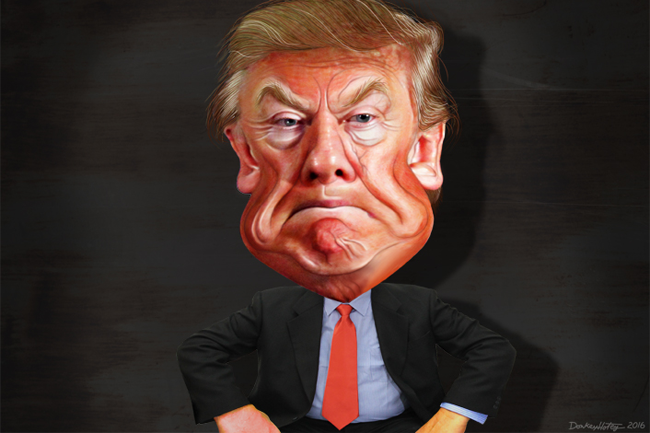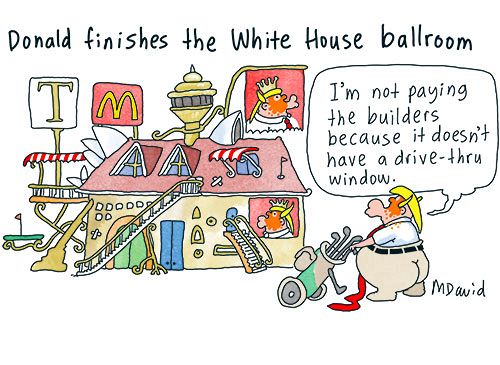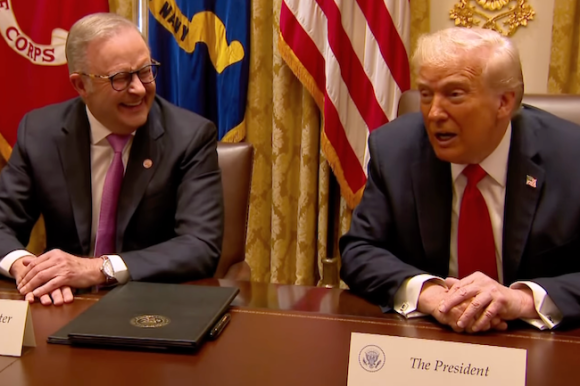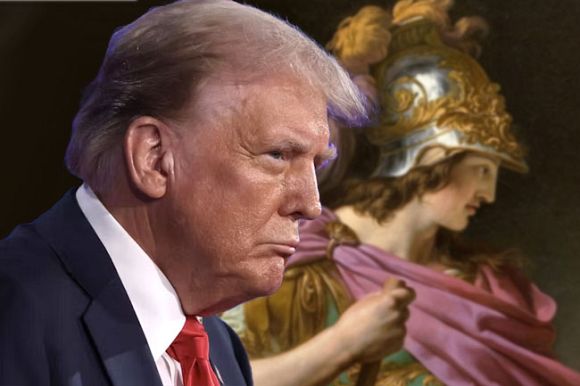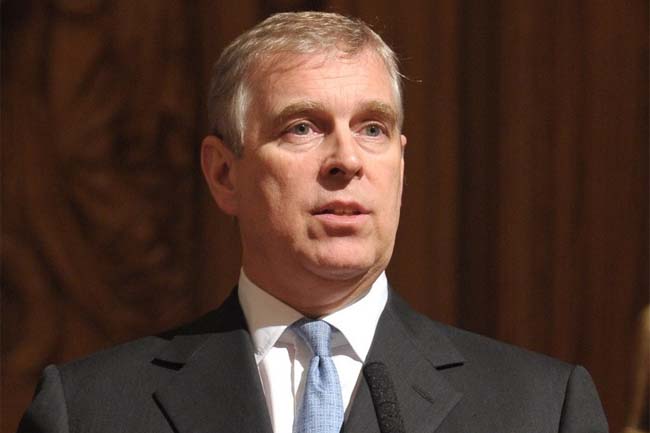Trump is an unpredictable force reshaping global politics and international behaviour, reframing diplomacy, institutions and public discourse in his wake, writes Vince Hooper.
IN THESE FRACTIOUS times, when economies wobble, alliances creak and half the world seems powered entirely by outrage, the global community faces a profound and unmet need: a unifying force.
A lodestar. A man who can walk into a summit, mispronounce a country, threaten tariffs on its exports, charm its dictator and still leave the room strangely more stable than before.
That man, of course, is Donald J Trump.
Some say the world needs healing. Others say the world needs humility. These people are wrong. The world needs Trump — not in a meek, metaphorical sense, but in the way a malfunctioning theme park needs a live electrician with a questionable attitude and a toolbox from the 1980s.
Trump is the geopolitical defibrillator of the modern age: loud, shocking and – much to the horror of experts – occasionally effective.
The strategic value of volatility
Trump provides something that no committee, policy framework, or Brussels working group can: productive chaos. Traditional diplomacy is paralysed by politeness. Trump, however, strolls into negotiations with the raw subtlety of a leaf blower in a monastery.
Where others see instability, Trump sees opportunity — preferably to put his name on something. The G7 becomes the T1. NATO becomes NAT-Oh! The U.N. renames itself the United Nodes of Trump Approval.
Yet, miraculously, the man’s unpredictability sometimes forces adversaries to act predictably. China, Russia, Iran, even NATO allies, may not like him, but they know exactly how deeply he values being liked. That, paradoxically, makes him transparent. Strategically transparent. Alarmingly transparent.
But transparency is better than opacity and Trump is the world’s first translucent statesman.
The moral clarity of absolute ambiguity
Where other leaders drown in nuance, Trump offers a welcome simplicity. He doesn’t do “grey zones” — he does “great” or “disaster”. There is no third option. Economists, historians and constitutional lawyers call this “binary populist reductionism”. The public calls it “refreshing”.
When Trump says something is the greatest achievement in human history, you may not believe him — but you do know precisely where he stands. When he calls something a disgrace, a disaster, or “very unfair, very sad”, you know as a matter of scientific certainty that he has read at least the first half of the headline.
International relations as a contact sport
Under Trump, geopolitics becomes easier to follow, like a sporting event with clearer commentary:
- Trade War Finals, live from Beijing;
- NATO Tag Team Wrestling, featuring bewildered Europeans; and
- The Middle East Peace Plan Invitational, where expectations go to die.
World leaders may not relish the spectacle, but global publics do. Trump brings ratings. Ratings bring attention. Attention brings engagement. And engagement – believe diplomats or not – actually reduces the likelihood of war.
Thus, Trump may accidentally be the greatest peacekeeper since the invention of sanctions.
Global bureaucracy needs a nemesis
Every superhero requires a villain. Bureaucracies are no different. Brussels, the IMF, the World Bank and the U.N. all function better when they have someone to complain about. Trump completes them.
Without Trump, multilateral institutions risk becoming dull, procedural, quietly irrelevant bodies that nobody notices. With Trump, they become bastions of reason, guardians of the rules-based order, noble defenders of international principles simply because they are not him.
It is a symbiotic relationship.
They need him.
He needs them.
Global governance depends on this cosmic imbalance.
Trump vs the BBC: A rivalry for the ages
No analysis of Trump’s global importance is complete without examining his greatest cultural nemesis: the BBC.
For decades, the BBC positioned itself as the gold standard of journalism — calm, balanced, restrained and faintly patronising. Then Trump entered the chat like a wrecking ball wearing a red tie soaked in the tears of fact-checkers.
Trump vs the BBC is not merely a feud; it is theatre. Shakespeare would have written five acts about it. The Greeks would have declared it a tragedy. Netflix would have cancelled it after two seasons.
Every BBC correspondent assigned to a Trump press conference looks like a war correspondent landing in Fallujah. They clutch their microphones as if reciting a will. Trump, in turn, treats the BBC as though it were a rival real estate agency with suspiciously few hotels.
Their exchanges are legendary:
- The BBC asks a long, complex, thoroughly researched question.
- Trump responds with: “Fake news. Nasty. Sad.”
- The BBC correspondent blinks three times, transmitting telepathic despair back to Broadcasting House.
And yet, perversely, the relationship works. Like Holmes and Moriarty, they elevate each other. Trump thrives on enemies; the BBC thrives on things to tut at. It is the most productive British-American partnership since Churchill and Roosevelt — just significantly funnier.
Of course, the zenith of the Trump-BBC saga is his current flirtation with suing the corporation — an event that sent BBC legal teams into a kind of genteel British panic, the type usually triggered by someone putting milk in the tea before hot water.
Trump’s legal threats may not be entirely clear, hinging somewhere between libel, “general rudeness” and the BBC’s failure to recognise what he called his “historic landslide that was stolen by arithmetic”.
Lawyers on both sides prepare for battle: Trump’s attorneys sharpen their press releases, while the BBC, in accordance with tradition, pluck their eyebrows. The case, of course, may never materialise, but the mere possibility of Trump v BBC electrifies both sides — one seeking damages, the other seeking higher ratings.
In the end, both can achieve exactly what they want: publicity, indignation and a new chapter in the world’s most unintentionally hilarious geopolitical soap opera.
The economic case: Trump as market volatility index
Economists hate volatility. Traders adore it. Trump is the only political figure who can single-handedly move markets using nothing more than capital letters on social media.
This is, from a liquidity perspective, magnificent.
From a risk management perspective, catastrophic.
From a comedic perspective, unparalleled.
The cultural case: A one-man content industry
Let us be honest: late-night comedians, meme creators, columnists, political cartoonists and half the global podcast industry owe their livelihoods to him. Without Trump, satire would return to its pre-2017 crisis, when nobody knew what to joke about and resorted to mocking quinoa.
Trump ensures constant cultural productivity.
He is the renewable energy of humour.
An infinite content generator.
A wind turbine made of spray tan and ego.
The philosophical case: A mirror to our madness
Above all, Trump reveals us to ourselves.
He is the world’s most powerful Rorschach test. What people see in him says far more about them than him.
Do you see a threat? A saviour? A disruptor? A punchline? Congratulations — you are human.
Trump is the global unity project we deserve: unifying not by consensus, but by universal argument.
Conclusion: The necessary absurdity
The world does not need Trump because he is wise.
The world does not need Trump because he is right.
The world needs Trump because he is Trump — the only figure capable of making global politics simultaneously comprehensible, outrageous and entertaining.
In an age of algorithmic gloom, bureaucratic paralysis and leaders who speak exclusively in focus-grouped beige, Trump offers a rare, indispensable service.
He reminds us that democracy, geopolitics and global civilisation are not delicate museum pieces to be protected behind glass, but glorious, chaotic public spectacles, best observed with popcorn.
And for that, whether we like it or not, the world needs him. The future is bright orange!
Vince Hooper is a proud Australian/British citizen and professor of finance and discipline head at SP Jain School of Global Management with campuses in London, Dubai, Mumbai, Singapore and Sydney.
 This work is licensed under a Creative Commons Attribution-NonCommercial-NoDerivs 3.0 Australia License
This work is licensed under a Creative Commons Attribution-NonCommercial-NoDerivs 3.0 Australia License
Support independent journalism Subscribe to IA.

Related Articles
- JEFF MCMULLEN: The boy with no eyes — the dangers of a new nuclear arms race
- Congressional Budget Office estimates of deportations will make Trump angry
- Australia thrives while USA struggles in challenging economic times
- From the Acropolis to Mar-a-Lago: Trump and the ghost of Alcibiades
- Republican White supremacy exposed through Trump’s agenda


